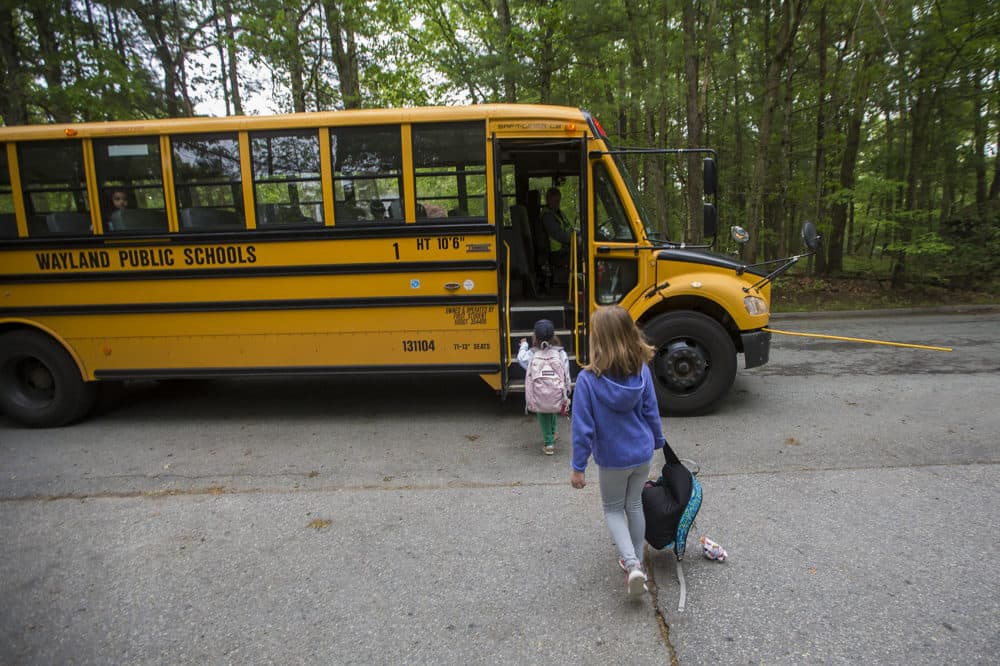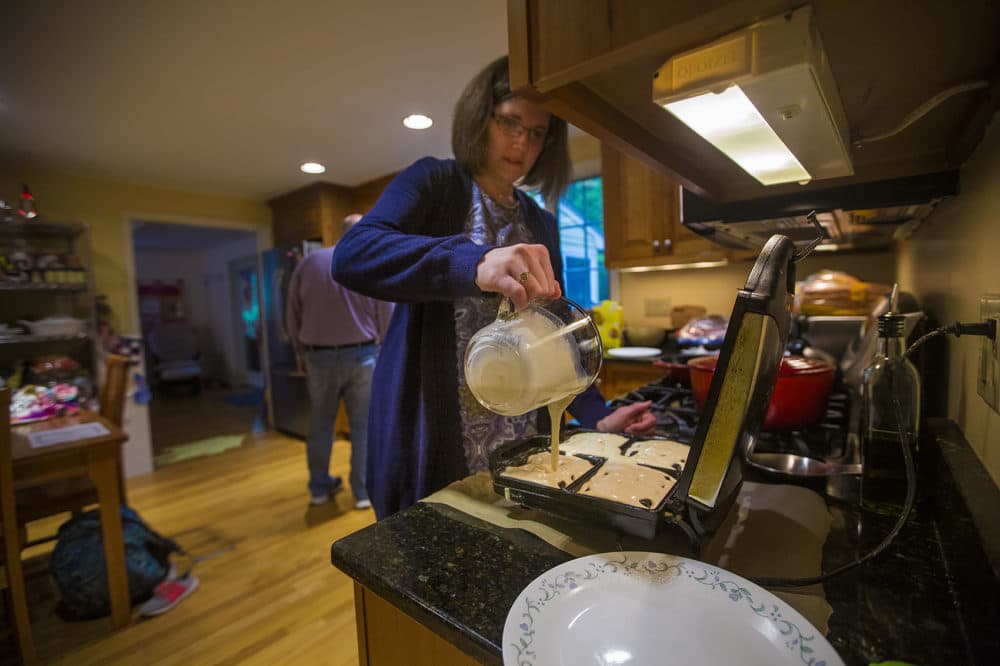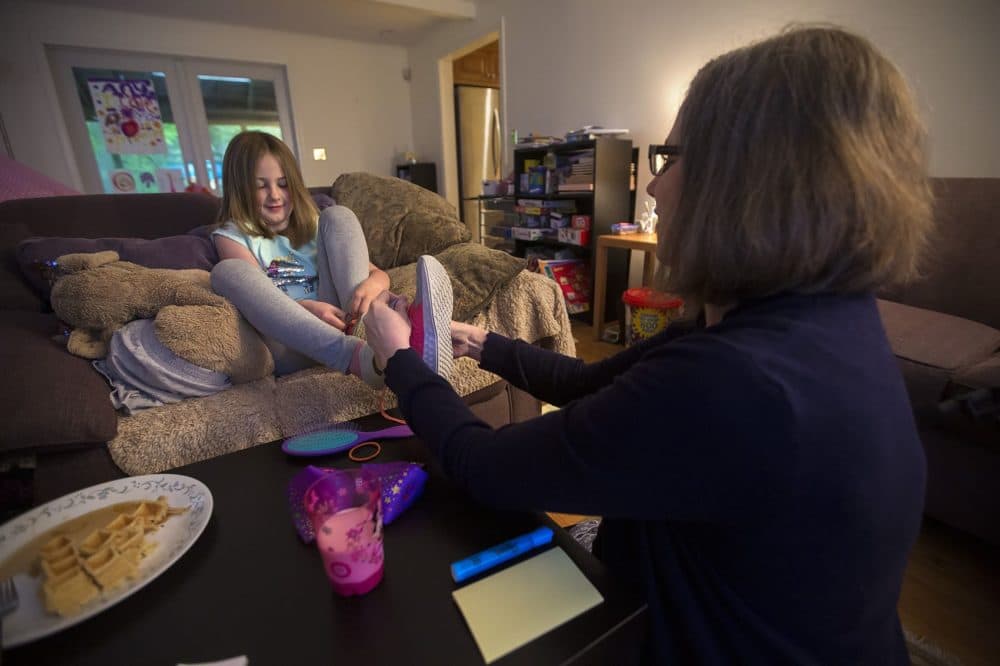Advertisement
What Does It Take To Change School Start Times? Officials In Wayland Say It's Complicated

Wayland parents are preparing for a big shift this fall: a new school start time. It's the most recent district to shift its school days later for high school and middle school students. At least a dozen districts in Massachusetts have made the change, many in the last two years.
The idea of starting school an hour later, around 8:30, is a welcomed change for many parents of teenagers.
"Peeling my kids out of bed each morning is not fun. And getting them to bed at night is hard," said Beth Martens, a mom of a 12- and 15-year-old. She said starting classes at 7:30 has been tough for her kids. They’re constantly sleep deprived.
"My 15-year-old started having sleep problems as soon as she got into middle school," she explained. In order to get enough rest most days, her daughter had to teach herself to take a nap before doing homework.
Martens is hoping her family’s routines before and after school will be easier next year because her kids will be more rested — fewer temper flare ups and better conversations.
"What I’m hoping is that the change is school times will allow my kids to get on a more normal sleep schedule," she added.
Research shows that circadian rhythms naturally shift later for teenagers. With school schedules starting in the 7:00 hour in a lot of Massachusetts districts, it can be difficult for teens to get enough sleep.
But not everyone in Wayland will be getting that extra rest. Elementary school students will have to head in to class 50 minutes earlier next fall. If just middle schools and high schools started later, then every student in the district would need a ride to class at the same time. That would mean more buses — with a price tag of at least $600,000 to $800,000 — a cost that Wayland Superintendent Arthur Unobskey said the district couldn’t justify.
Advertisement
"Not having our full teachers force or cutting a program just didn’t seem like it would gain us anything," he said "So we were pretty constricted."
For elementary school parents, the new start time means upending carefully balanced routines.

Even with a 7-year-old, Kristen Heres said she’s got her mornings down to a science right now. She wakes up at 5:00 a.m. Her daughter Anya is next at 7:15. Then Heres makes breakfast and helps Anya figure out what she's wearing. The final steps: hair combing and shoe tying before the entire family leaves the house around 8 o'clock.
Heres and her husband both work full time. She said when the school day shifts earlier in the fall, the afternoon routines will be the hardest to change. The earlier start also means kids will be getting out earlier. Heres doesn’t have a flexible work schedule, so Anya will have to stay in after-school care an hour longer.
"We need to get dinner on the table and we need to get homework done, we need to get bath time done," she said. "And if my daughter needs to go to bed an hour earlier, that’s one less hour to complete all those tasks and still have time to relax and talk and ask how everyone’s day was."
That extra after-school care will also cost about $1,500 a year.
"It’s going to be difficult," she said. "I can only leave work at 4:30 so often before it becomes problematic for my career."

The 137 kids enrolled in METCO, the voluntary desegregation program that brings Boston students to suburban districts, will also be affected by the schedule change. The district is currently finalizing plans to reduce the impact on those families.
Superintendent Unobskey said that navigating all of this change and making sure all of the pieces fit together hasn’t been easy. School start times have been a hot political topic in the town since the school committee began considering the idea several years ago.
"Really thinking through that has been complicated," he said. "And it caused a fair amount of angst on the part of parents." Unobskey added that he understands why: When the school day changes so does the rest of a family’s day.
Recent research shows that delaying when school begins could be linked to things like better attendance and fewer kids falling asleep in class. That’s why Unobskey hopes the initial pain required to make the shift will eventually pay off.
This segment aired on June 14, 2019.
